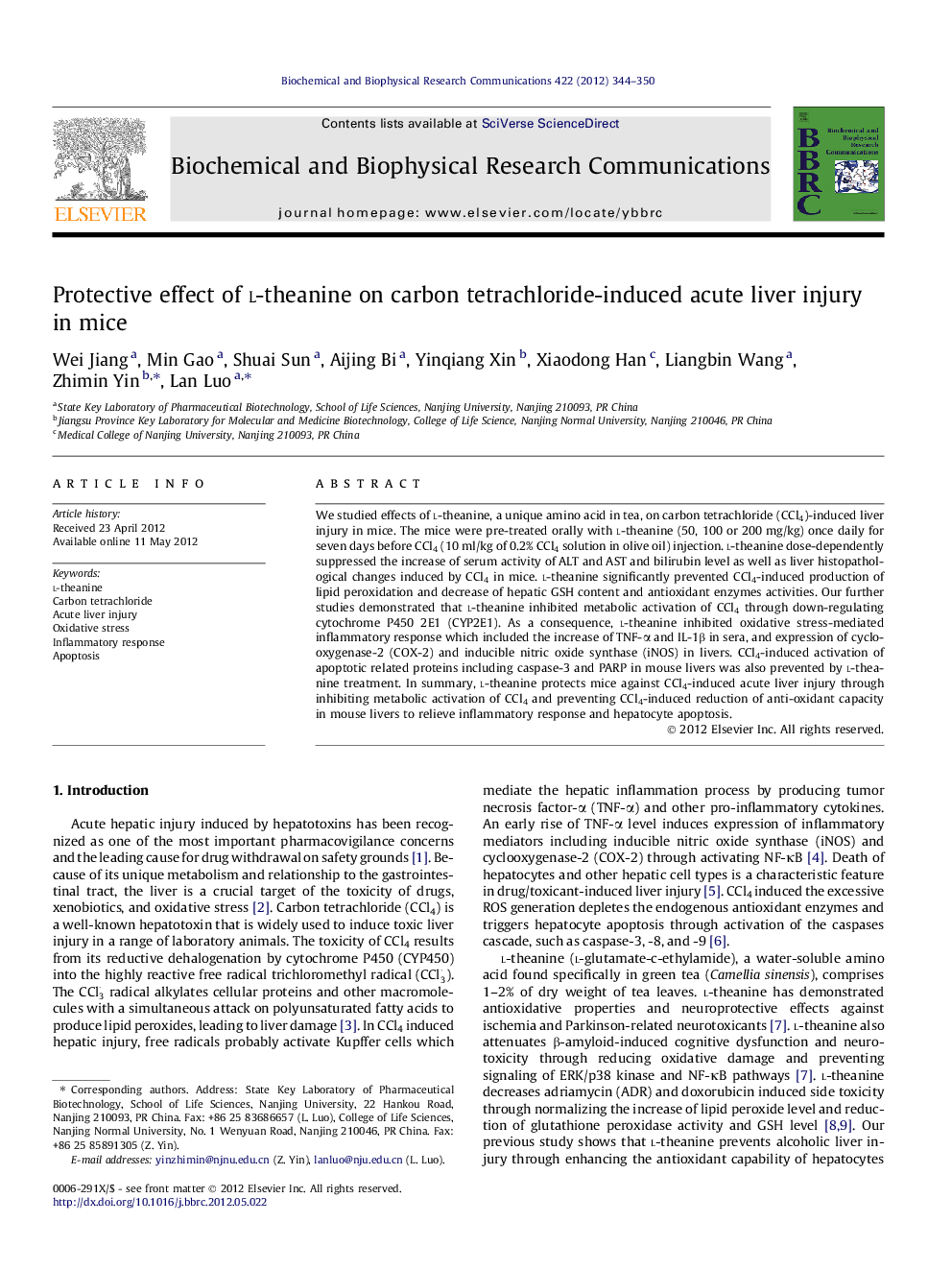| Article ID | Journal | Published Year | Pages | File Type |
|---|---|---|---|---|
| 1929703 | Biochemical and Biophysical Research Communications | 2012 | 7 Pages |
We studied effects of l-theanine, a unique amino acid in tea, on carbon tetrachloride (CCl4)-induced liver injury in mice. The mice were pre-treated orally with l-theanine (50, 100 or 200 mg/kg) once daily for seven days before CCl4 (10 ml/kg of 0.2% CCl4 solution in olive oil) injection. l-theanine dose-dependently suppressed the increase of serum activity of ALT and AST and bilirubin level as well as liver histopathological changes induced by CCl4 in mice. l-theanine significantly prevented CCl4-induced production of lipid peroxidation and decrease of hepatic GSH content and antioxidant enzymes activities. Our further studies demonstrated that l-theanine inhibited metabolic activation of CCl4 through down-regulating cytochrome P450 2E1 (CYP2E1). As a consequence, l-theanine inhibited oxidative stress-mediated inflammatory response which included the increase of TNF-α and IL-1β in sera, and expression of cyclooxygenase-2 (COX-2) and inducible nitric oxide synthase (iNOS) in livers. CCl4-induced activation of apoptotic related proteins including caspase-3 and PARP in mouse livers was also prevented by l-theanine treatment. In summary, l-theanine protects mice against CCl4-induced acute liver injury through inhibiting metabolic activation of CCl4 and preventing CCl4-induced reduction of anti-oxidant capacity in mouse livers to relieve inflammatory response and hepatocyte apoptosis.
► l-theanine provides protection against CCl4-induced hepatic injury. ► l-theanine inhibits metabolic activation of CCl4 through down-regulating CYP2E1. ► l-theanine prevents CCl4-induced oxidative stress. ► l-theanine inhibits CCl4-induced inflammatory cascade in the liver. ► l-theanine decreases the apoptosis in hepatocytes trigged by CCl4.
